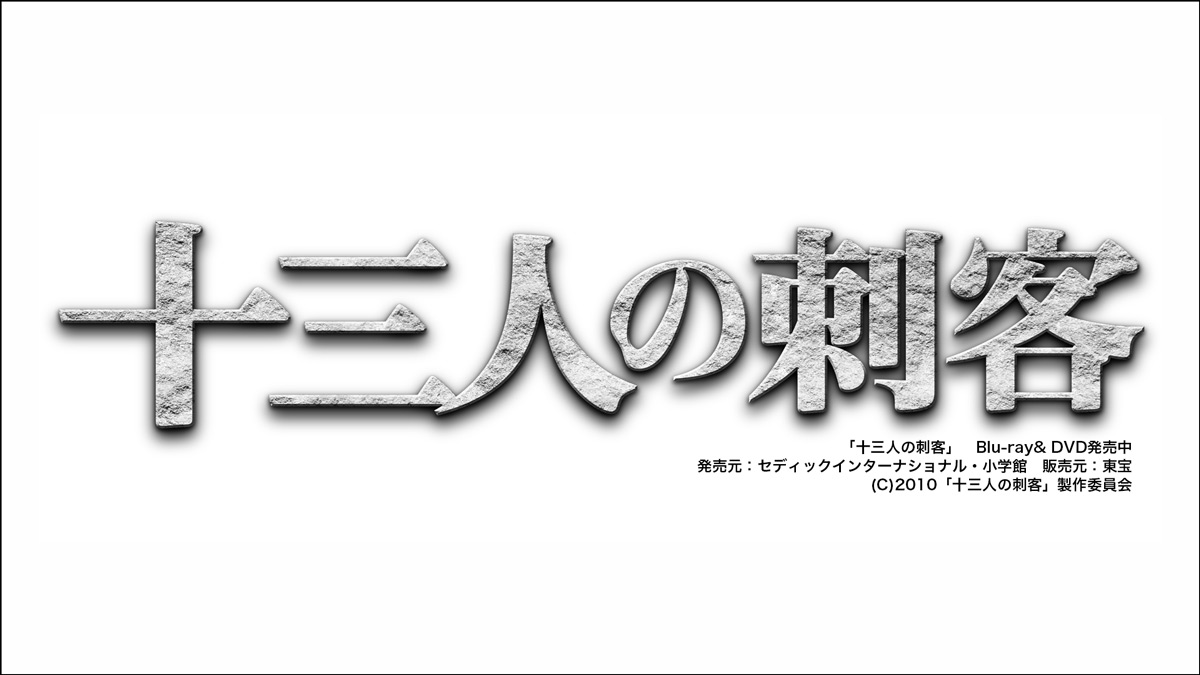
“Thirteen Assassins” Jim Jarmusch was also intoxicated! ? Genealogy of group conflict period dramas
2017.10.12
The carnage catharsis of “The Great Bodhisattva Pass” was highly praised by Jarmusch.
Strictly speaking, it is not a ``group conflict historical drama,'' but there are historical dramas that have become legendary overseas because they ``cut, cut, and slash'' an incredible number of enemies. The Toho film `` Thirteen Assassins . ''
To begin with, ``Dai Bodhisattva Pass'' is a large, unfinished novel written by literary giant Kaizan Nakazato over a period of almost 30 years, starting in 1913. The main character is a master swordsman named Ryunosuke Kuki, who has mastered the sword technique known as the "silent stance," but his hobby is tsujigiri. He is an extremely dangerous person who slashes everyone from babies to the elderly to kill time. This is a truly terrible story about this incomprehensible "ideological terrorist" who continues to commit crimes while wandering through the end of the Edo period.
However, perhaps because he is so outstanding, the character Ryunosuke Tsuke has been popular for a long time, and has been played by top stars of the era. In the 1950s, Chiezo Kataoka, also known as Shinzaemon Shimada, from the original version of ``The Thirteen Assassins'' played the role of Ryūnosuke twice, and he starred in Kihachi Okamoto's version of ``Dabosatsu Pass'', which was later adapted into a TV drama. Tatsuya Nakadai will be playing Shinzaemon Shimada in ``The Thirteen Assassins''. Both Ryunosuke Tsuke and Shinzaemon Shimada may be roles that only actors who have reached the pinnacle of historical drama are allowed to play.
As mentioned above, since the original story of ``Dai Bodhisattva Pass'' is long, it was usually made into a film as a two-part or trilogy. The 1966 Kihachi version was also originally planned to be a two-part series, but midway through production, Toho higher-ups informed them that the second part would be cancelled. There, Kihachi Okamoto pulls off an outrageous feat, knowing that he will end up being a cutthroat dragonfly.
Ryunosuke Tsuki, played by Tatsuya Nakadai, joins the Shinsengumi in Kyoto at the end of the Edo period after a period of exile. Meanwhile, a young samurai, Hyōma (Yuzo Kayama), who aims to kill Ryūnosuke Tsuki, ambushes him in front of a restaurant where the Shinsengumi are having a banquet. (The role of the thief who enlists help is played by Akira Nishimura, who played Kujuro Hirayama in the original ``Thirteen Assassins'')
However, upon seeing the vengeful spirits of those he has killed in the past, Ryunosuke Tsuke becomes confused and begins slashing at his fellow Shinsengumi members. It's not a "group conflict historical drama" because it's about one person versus many people, but Ryunosuke Kuki also cuts and cuts and cuts. Exhausted, he swings his sword as if possessed, killing, killing, and killing like a demon as he screams. The viewer begins to feel a sense of euphoria, as if on a mental drug, and the movie ends with a bang just as the catharsis of the carnage reaches its climax.
When I first saw it, I was blown away. What happened to Yuzo Kayama, who was waiting in front of the restaurant? All of this is dismissed as a trivial matter, and the curtain is forcibly brought to a close with Tatsuya Nakadai's fierce sword fight. What a violent ending. Sam Peckinpah was also surprised by the historical drama version of the ``Ballet of Death''.
Many foreign filmmakers, including John Milius, have fallen in love with the film's strange charm, and New York indie director Jim Jarmusch has listed it as one of his ``5 must-see movies.'' According to an article on the foreign site No Film School, Jarmusch highly praised Kihachi's version of Daibosatsu Pass, calling it ``beautiful, very, very barbaric, and the most nihilistic film I've ever seen.''
In order to quit smoking, Jarmusch holed up alone at home for a week and continued to watch ``Great Bodhisattva Pass'' twice a day as shock therapy. No matter how painful the withdrawal symptoms of cigarettes are, watching the carnage in Dai Bodhisattva Pass will help you feel refreshed and calm, so if you want to quit being a heavy smoker, why not give it a try?
Text: Akira Murayama
Born in 1971. Writes articles for magazines, newspapers, movie sites, etc. Representative of “ShortCuts,” a review site for distribution-based works.

